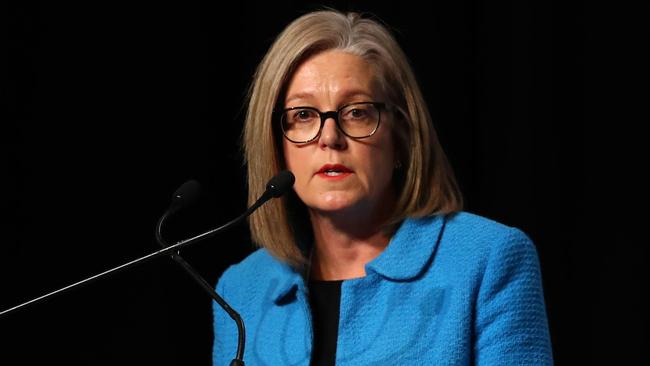Universities accused of failing to deliver job-ready graduates
The failure of universities to deliver job-ready students is being investigated by the Productivity Commission.

Universities with “little skin in the game” to land graduates jobs will be investigated by the Productivity Commission, after students flooded institutions in the wake of “uncapped” student place funding.
In a speech to the Committee for Economic Development of Australia in Brisbane yesterday, deputy chair Karen Chester said the Productivity Commission was examining the potential failure of over-attended universities to deliver job-ready students in “a world of uncapped demand”.
It’s a further escalation of the commission’s work combing over worsening outcomes for students in the university, secondary and VET sectors, as it grapples with the changing nature of employment and technological disruption.
Ms Chester said the current tertiary system was incompatible with the needs of workers: “lifelong learning and skill acquisition, to keep up with changing workforce demands, and equip them as they move between both occupations and industries.
“Retraining is inconvenient and expensive. And the approach of education institutions remains outdated and outmoded — still emphasising a one-career-for-life approach, which is no longer the modern-day reality,” Ms Chester said.
In a “self-initiated” project, the commission is now examining whether universities are delivering education and employment for the cohort of “additional” students, which are produced in a world of uncapped demands.
Last year, then-education minister Simon Birmingham announced an indirect cap on student places by launching a two-year freeze on university funding.
Labor has promised to return to “demand-driven” funding, which was introduced in 2012 and sees institutions receive extra commonwealth funding in line with the number of enrolments.
Ms Chester said the Productivity Commission would examine whether universities with little incentive to place graduates in work had delivered for students, especially for those for whom “the better path to employment may not reside in expensive sandstone learning”.
Ms Chester said tertiary institutions needed to align “financial incentives more closely with student outcomes, to give universities some “skin in the game”, and encourage them to tailor the education they provide to workforce needs.”
The debate about funding on an uncapped basis comes as unemployment for younger Australians remains stubbornly high and as graduates find difficulty gaining employment in their chosen fields.
Undergraduate underemployment, where former students are in work that does not align with their skills, has reached one in five workers.
Ms Chester said high schools were also due for an overhaul and needed to stop making teachers deliver classes outside their areas of expertise. She said the VET system was “a mess” and struggled to deliver competency-based qualifications. Employers were more satisfied with non-accredited training courses than results from the VET system.
Ms Chester said the government should develop a way to assess how proficient students were in their skills, rather than the current model that measures whether they can perform the skills at all.



To join the conversation, please log in. Don't have an account? Register
Join the conversation, you are commenting as Logout